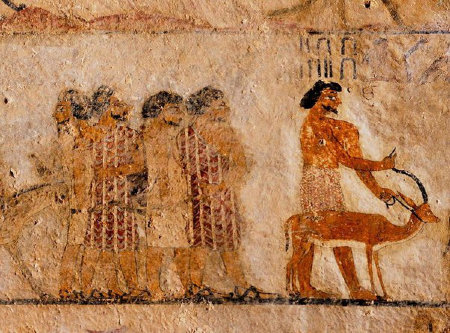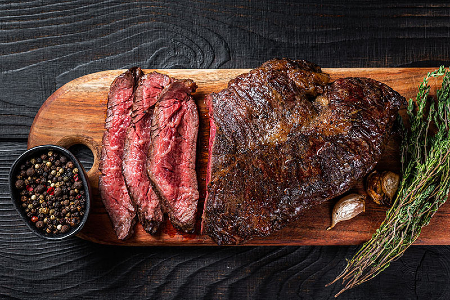First-Fruits
FREE Catholic Classes
The practice of consecrating first-fruits to the Deity is not a distinctly Jewish one (cf. Iliad, IX, 529; Aristophanes, "Ran.", 1272; Ovid, "Metam.", VIII, 273; X, 431; Pliny, "Hist. Nat.", IV, 26; etc.). It seems to have sprung up naturally among agricultural peoples from the belief that the first — hence the best — yield of the earth is due to God as an acknowledgment of His gifts. " God served first", then the whole crop becomes lawful food. The offering of the first-fruits was, in Israel, regulated by laws enshrined in different parts of the Mosaic books. These laws were, in the course of ages, supplemented by customs preserved later on in the Talmud. Three entire treatises of the latter, "Bíkkûrîm", "Terû-môth", and "Hállah", besides numerous other passages of both the Mishna and Gemarah, are devoted to the explanation of these customs.
First-fruit offerings are designated in the Law by a threefold name: Bíkkûrîm, Reshîth, and Terûmôth. There remains much uncertainty about the exact import of these words, as they seem to have been taken indiscriminately at different epochs. If, however, one considers the texts attentively, he may gather from them a fairly adequate idea of the subject. There was a first-fruit offering connected with the beginning of the harvest. Leviticus, xxiii, 10-14, enacted that a sheaf of ears should be brought to the priest, who, the next day after the Sabbath, was to lift it up before the Lord. A holocaust, a meal-offering, and a libation accompanied the ceremony ; and until it was performed no "bread, or parched corn, or frumenty of the harvest" should be eaten. Seven weeks later two loaves, made from the new harvest, were to be brought to the sanctuary for a new offering. The Bíkkûrîm consisted, it seems, of the first ripened raw fruits; they were taken from wheat, barley, grapes, figs, pomogranates, olives, and honey. The fruits offered were supposed to be the choicest, and were to be fresh, except in the case of grapes and figs, which might be offered dried by Israelites living far from Jerusalem. No indication is given in Scripture as to how much should be thus brought to the sanctuary. But the custom was gradually introduced of consecrating no less than one-sixtieth and no more than one-fortieth of the crop (Bíkk., ii, 2, 3, 4). Occasionally, of course, there were extraordinary offerings, like that of the fruit of a tree the fourth year after it bad been planted ( Leviticus 19:23-25 ); one might also, for instance, set apart as a free offering the harvest of a whole field.
No time was, at first, specially set apart for the offering ; in later ages, however, the feast of Dedication (25 Casleu) was assigned as the limit (Bíkk., i, 6; Hállah, iv, 10). In the Book of Deuteronomy, xxvi, 1-11, directions are laid down as to the manner in which these offerings should be made. The first-fruits were brought in a basket to the sanctuary and presented to the priest, with an expression of thanksgiving for the deliverance of Israel from Egypt and the possession of the fertile land of Palestine. A feast, shared by the Levite and the stranger, followed. Whether the fruits offered were consumed in that meal is not certain; Numbers, xviii, 13, seems to intimate that they henceforth belonged to the priest, and Philo and Josephus suppose the same.
Other offerings were made of the prepared fruits, especially oil, wine, and dough ( Deuteronomy 18:4 ; Numbers 15:20-21 ; Leviticus 2:12, 14-15 ; cf. Exodus 22:29 , in the Greek), and "the first of the fleece". As in the case of the raw fruits, no quantity was determined; Ezechiel affirms that it was one-sixtieth of the harvest for wheat and barley and one-one hundredth for oil. They were presented to the sanctuary with ceremonies analogous to those alluded to above, although, unlike the Bíkkûrîm, they were not offered at the altar, but brought into the store-rooms of the temple. They may he looked upon, therefore, not so much as sacrificial matter as a tax for the support of the priests. (See ANNATES.)
Join the Movement
When you sign up below, you don't just join an email list - you're joining an entire movement for Free world class Catholic education.
-

-
Mysteries of the Rosary
-
St. Faustina Kowalska
-
Litany of the Blessed Virgin Mary
-
Saint of the Day for Wednesday, Oct 4th, 2023
-
Popular Saints
-
St. Francis of Assisi
-
Bible
-
Female / Women Saints
-
7 Morning Prayers you need to get your day started with God
-
Litany of the Blessed Virgin Mary
Biblical Lost Alphabet Traced Back to Ancient Canaanite Civilization
-

What are the Health Benefits of Grass-Fed Beef for Your Body and Mind?
-

Rise Above Poverty is Empowering Children and Families Through Education and Compassion
-
Artists and Leaders Rally to Preserve the Traditional Latin Mass
-
Republicans Demand Answers Over Army Training Slide Labeling Pro-Life Groups as Terrorist Threats
Daily Catholic
 Daily Readings for Wednesday, July 24, 2024
Daily Readings for Wednesday, July 24, 2024 St. John Boste: Saint of the Day for Wednesday, July 24, 2024
St. John Boste: Saint of the Day for Wednesday, July 24, 2024 Prayer for Travelers: Prayer of the Day for Wednesday, July 24, 2024
Prayer for Travelers: Prayer of the Day for Wednesday, July 24, 2024- Daily Readings for Tuesday, July 23, 2024
- St. Bridget of Sweden: Saint of the Day for Tuesday, July 23, 2024
- A Child's Prayer to Mary: Prayer of the Day for Tuesday, July 23, 2024
![]()
Copyright 2024 Catholic Online. All materials contained on this site, whether written, audible or visual are the exclusive property of Catholic Online and are protected under U.S. and International copyright laws, © Copyright 2024 Catholic Online. Any unauthorized use, without prior written consent of Catholic Online is strictly forbidden and prohibited.
Catholic Online is a Project of Your Catholic Voice Foundation, a Not-for-Profit Corporation. Your Catholic Voice Foundation has been granted a recognition of tax exemption under Section 501(c)(3) of the Internal Revenue Code. Federal Tax Identification Number: 81-0596847. Your gift is tax-deductible as allowed by law.









 Daily Readings for Wednesday, July 24, 2024
Daily Readings for Wednesday, July 24, 2024 St. John Boste: Saint of the Day for Wednesday, July 24, 2024
St. John Boste: Saint of the Day for Wednesday, July 24, 2024 Prayer for Travelers: Prayer of the Day for Wednesday, July 24, 2024
Prayer for Travelers: Prayer of the Day for Wednesday, July 24, 2024

